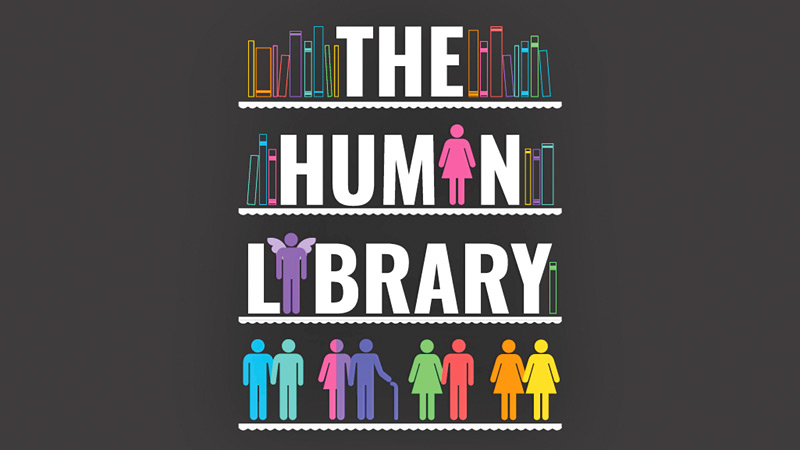With the development of science and technology, many fields have undergone unprecedented transformations. Library and information science, of course, is not an exception. What holds true is the fact that libraries play a critical role as institutions that continue to serve the public by providing essential resources.
In recent times, libraries have evolved beyond physical spaces and now encompass various forms of information access. This transformation has been primarily driven by advancements in modern technology. Consequently, traditional library models have given rise to new concepts, including digital libraries, virtual libraries, and green libraries.
However, a distinct concept has emerged in the field of library science, namely the human library. The concept of a human library is a particularly noteworthy and innovative development worldwide. In contrast to conventional libraries, human libraries contain no books, only individuals with diverse knowledge and experiences. The primary objective of the human library is to foster positive transformation in an individuals’ behaviour, attitudes, and thoughts through the utilization of language and the mechanisms commonly associated with libraries.
Human intellect, which has pioneered artificial intelligence, holds a position of unparalleled superiority compared to other forms of intelligence. Unsurprisingly, man has sought to harness this technology to manage and cultivate knowledge. Emerging from this intellectual landscape, the concept of a human library represents the latest addition to the diverse array of library models. The theme of “REAL PEOPLE – REAL CONVERSATION” has gained prominence in libraries across more than 70 countries worldwide.
The Human Library, or “Menneskebiblioteket” in Danish, originated in Copenhagen during the spring of 2000, devised by Ronni Abergel, his brother Dany, and their colleagues Asma Mouna and Christoffer Erichsen.
The inaugural event spanned four consecutive days, with eight hours of operation each day and featuring over fifty distinct “book” titles. This extensive selection of Human Library “books” allowed readers plentiful opportunities to challenge and confront their preconceived notions, leading to an astounding reception and impact that left librarians, organizers, and readers deeply astonished.
Importantly, these human libraries operate as non-profit equity projects, fostering social connections and providing free services to the public. Their implementation does not necessitate significant financial investments and can be conveniently organized within settings such as supermarkets, railway stations, or public libraries. Through the unique platform provided by human libraries, libraries foster transformative conversations.
The implementation of digital concepts within numerous libraries is becoming increasingly prevalent. These digital libraries encompass a broad range of resources, such as e-books, e-journals, and mp3 players. However, in order to foster the exchange of ideas and information through living sources, the concept of human libraries has emerged as a vital component. Human libraries serve as a powerful tool for rejecting violence, promoting communication, and eliminating prejudice. They provide a unique opportunity to engage with individuals from diverse backgrounds. The premise underlying human libraries is rather straightforward: instead of making snap judgments based on appearances, one can engage with real individuals who offer firsthand experiences and stories. Through this interaction, individuals can find solutions to their own problems.
The Human Library Organization has articulated several critical goals for human libraries, including the creation of spaces for dialogue and understanding. Moreover, these libraries actively promote and uphold human rights while combating discrimination, stereotyping, and prejudice. By capitalizing on the knowledge and experiences of individuals in the community, human libraries facilitate personal growth and nurturing of a mindset that embraces openness and acceptance of others.
The Human Library offers a remarkable collection of life stories presented by volunteers who serve as “books.” Within a designated time frame, readers can interact with these books, posing questions and attentively listening to their narratives. Each book carries a captivating and approachable demeanor, allowing individuals who have effectively confronted diverse life challenges to impart their experiences, ideas, and knowledge to readers or participants.
Through this engagement, the human books within the human library motivate and inspire individuals to effectively address their own challenges. Many individuals face an array of problems that prove difficult to resolve. In societies worldwide, numerous individuals have endured significant hardships, including severe illnesses, disabilities, and cancer diagnoses.
Mental anguish resulting from unresolved problems afflicts certain individuals within society. Some individuals suffer in silence, unable to obtain support or to share their troubles with others. Regrettably, there are instances where young men and students, overwhelmed by their problems and challenges, resort to taking their own lives. The human library serves as an essential resource, offering opportunities to collectively discover solutions for diverse problems while encouraging the sharing of personal experiences with others. By fostering a supportive environment, human libraries contribute significantly to addressing these challenges. Sri Lanka boasts a commendable infrastructure of approximately 15 university libraries and nearly 1200 public libraries. However, it is disheartening to note the absence of a formalized expansion of the human library concept within the country without a few libraries.
Despite the substantial benefits associated with human libraries, there appears to be a lack of systematic integration within Sri Lanka’s library system. Therefore, it is imperative for relevant authorities to prioritize the expansion of the human library concept within the Sri Lankan library system, mirroring the successful implementation observed in foreign countries. By doing so, Sri Lankans can avail themselves of the numerous advantages afforded by human libraries, further enriching their intellectual experiences and fostering a more inclusive society.









